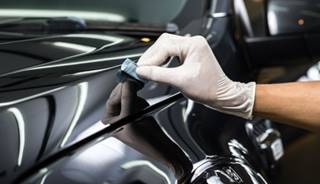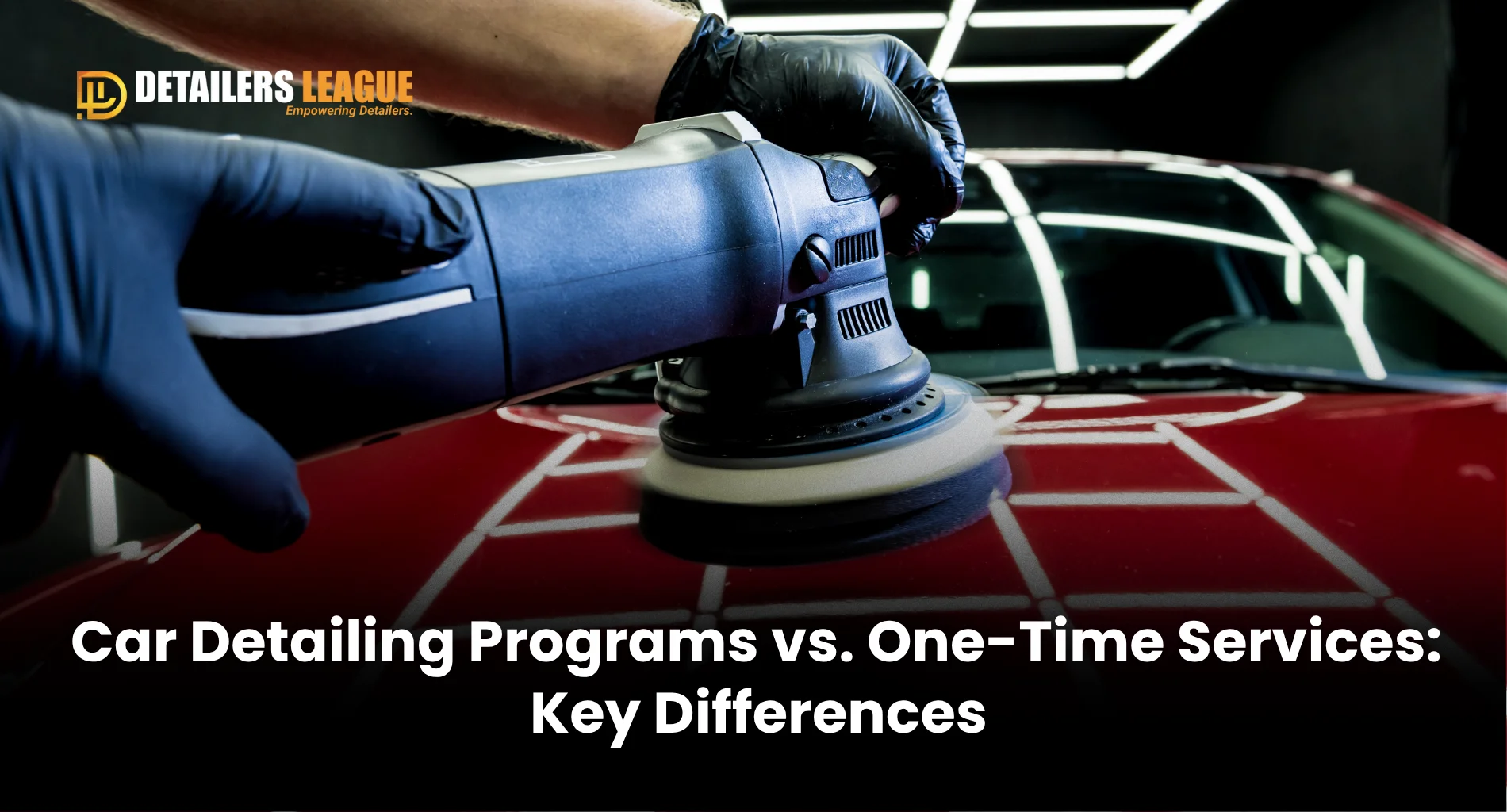
Introduction
Car detailing is more than just giving your car a wash; it’s an art and a science that can bring a vehicle back to life, making it look as good as new. Whether you’re a car enthusiast wanting to take better care of your vehicle, or someone eyeing a lucrative career in the automotive industry, learning the ins and outs of car detailing can be incredibly beneficial. A car detailing course can equip you with the knowledge and skills needed to transform a dusty, worn-out vehicle into a gleaming, showroom-ready machine.
Understanding Car Detailing
Car detailing goes beyond the standard car wash. It involves a meticulous cleaning process that covers both the exterior and interior of the vehicle, often including parts of the engine. Unlike a simple wash, detailing requires special tools, chemicals, and a lot of know-how.
Differences Between Car Detailing and Regular Car Wash
A regular car wash focuses on removing dirt from the car’s surface, typically involving a basic wash, rinse, and drying. Car detailing, on the other hand, is a deep cleaning process that includes paint correction, polishing, waxing, and even restoration work. It’s a thorough process designed to protect the car’s paint and interior, enhance its appearance, and extend its life.
Key Components of Car Detailing
- Exterior Detailing: This includes washing, claying, polishing, and waxing the car’s body, cleaning and restoring headlights, tires, and windows, and protecting the paint with sealants or ceramic coatings.
- Interior Detailing: Focuses on deep cleaning the upholstery, carpets, dashboard, and other interior components. It may involve vacuuming, steam cleaning, and applying conditioners to leather or plastic parts.
- Engine Detailing: Although often overlooked, cleaning the engine bay is an essential part of a full car detailing service. This ensures that dirt, grime, and grease are removed, which can improve the vehicle’s performance.
Why Take a Car Detailing Course?
Learning car detailing is not only beneficial for those looking to maintain their own vehicle but also opens doors to a professional career. Whether you’re considering starting your own detailing business or want to add a new skill to your automotive repertoire, a course can provide you with a solid foundation.
Benefits of Learning Car Detailing
A car detailing course teaches you how to properly care for a vehicle, which can save you money on repairs and maintenance in the long run. Additionally, the knowledge you gain can be a stepping stone toward starting a profitable business. Many people start detailing as a side hustle and then scale up to full-time operations.
Career Opportunities in Car Detailing
The automotive industry offers various opportunities for skilled detailers. You could work at a detailing shop, start your own business, or even become a mobile detailer. Some detailers specialize in high-end luxury cars or classic vehicles, which can be particularly rewarding.
Types of Car Detailing Courses
Car detailing courses come in various formats to suit different learning preferences and schedules.
In-Person Workshops
These are usually held at detailing schools or training centers and offer hands-on experience under the guidance of expert instructors. They are ideal for those who prefer face-to-face learning and immediate feedback.
Online Courses
Perfect for those with busy schedules, online courses offer the flexibility to learn at your own pace. They typically include video tutorials, reading materials, and sometimes live webinars.
Certification Programs
Certification courses are more comprehensive and often recognized by industry professionals. Completing such a course can give you a competitive edge in the job market or add credibility to your detailing business.
Specialized Courses
For those looking to specialize, there are courses focused on specific aspects of detailing like ceramic coating application, paint correction, or interior detailing. These courses can help you become an expert in a niche area.
What to Expect in a Car Detailing Course
Most car detailing courses offer a mix of theoretical knowledge and practical experience. Here’s what you can typically expect:
Course Curriculum Overview
- Tools and Equipment: You’ll learn about the various tools used in detailing, such as buffers, polishers, vacuum cleaners, and steamers.
- Chemical Products and Their Uses: This includes learning about the different types of cleaning agents, polishes, waxes, and coatings, and how to use them safely.
- Detailing Techniques: Courses will cover the step-by-step process for detailing a car, including surface preparation, cleaning, polishing, and protection.
Hands-On Training and Practice
Hands-on training is a critical part of any detailing course. You’ll get to practice on real vehicles, allowing you to refine your techniques and gain confidence.
Duration and Format of Courses
Courses can range from a few days to several weeks, depending on the depth of the curriculum and whether they include certification. Online courses may be self-paced, while in-person workshops typically have a fixed schedule.
Choosing the Right Car Detailing Course
With so many options available, how do you choose the right course? Here are some factors to consider:
Instructor Expertise
The quality of the instructor can make or break a course. Look for courses taught by experienced professionals who have a proven track record in the industry.
Course Content and Structure
Ensure the course covers all the areas you’re interested in, whether that’s general detailing or specialized techniques. A well-structured course should offer a good balance of theory and practice.
Reviews and Testimonials
Check out reviews from previous students to get an idea of what to expect. Testimonials can provide insight into the course’s effectiveness and the instructor’s teaching style.
Cost and Accessibility
While it’s essential to invest in a good course, make sure it fits your budget. Also, consider the location if you’re opting for an in-person course, or the technological requirements for an online course.
Top Car Detailing Courses Available
There are numerous courses out there, but some stand out for their quality and reputation.
Overview of Popular Courses and Institutions
Institutions like the International Detailing Association (IDA) offer certification programs that are widely recognized. Other reputable platforms include Detail King, Meguiar’s, and Chemical Guys, which provide both online and in-person training.
Detailed Look at Highly-Rated Online Platforms
For online learning, platforms like Detail King and the Online Detailing Academy offer comprehensive courses that include video tutorials, downloadable resources, and support from instructors.
Best In-Person Workshops Across the U.S.
If you prefer hands-on learning, consider workshops at detailing schools such as Renny Doyle’s Detailing Success, which offers training at various locations across the U.S.
Tools and Equipment Covered in a Car Detailing Course
A good course will introduce you to a wide range of tools and equipment, from basic to advanced.
Essential Tools for Car Detailing
This includes items like microfiber cloths, brushes, and buckets, as well as more specialized tools like dual-action polishers, clay bars, and steam cleaners.
Advanced Equipment for Professional Detailers
For those looking to go pro, understanding advanced equipment like paint thickness gauges, ozone generators, and ceramic coating application tools is essential.
Maintenance and Care of Detailing Equipment
You’ll also learn how to maintain your tools to ensure they last longer and continue to perform effectively.
Chemical Products and Their Uses
Chemicals play a crucial role in car detailing, and understanding their proper use is vital.
Understanding Different Types of Detailing Chemicals
- Cleaners and Degreasers: Used for removing dirt, grime, and grease from various surfaces.
- Polishes and Waxes: Essential for restoring the car’s paint and providing a protective layer.
- Ceramic Coatings and Sealants: These offer long-lasting protection against environmental damage.
Safety Tips When Handling Chemicals
Safety should always come first. Courses will cover the importance of wearing protective gear, proper ventilation, and how to safely store and dispose of chemicals.
Learning Detailing Techniques
Mastering the art of detailing involves learning a variety of techniques.
Step-by-Step Guide to Exterior Detailing
This includes washing, claying, polishing, and protecting the exterior. You’ll learn how to use a buffer, apply wax, and treat the tires and wheels.
Interior Detailing: Best Practices
From vacuuming to steam cleaning, interior detailing is all about attention to detail. You’ll learn how to clean and protect different materials like leather, fabric, and plastic.
Engine Detailing Techniques
Engine detailing involves careful cleaning to avoid damaging components. You’ll learn how to use degreasers, dressings, and protectants safely.
Advanced Techniques: Paint Correction, Ceramic Coating
For those interested in advanced skills, techniques like paint correction, which involves removing imperfections in the paint, and applying ceramic coatings, which offer long-term protection, are essential.
Hands-On Experience: The Key to Mastery
Nothing beats practice when it comes to mastering car detailing.
Importance of Practical Training
Theoretical knowledge is important, but hands-on practice is where you’ll truly learn how to detail a car. This is why courses that offer real-world training are so valuable.
How to Practice Car Detailing Skills
Start by detailing your own car or offer to detail friends’ and family members’ vehicles. Practice is essential for building confidence and improving your techniques.
Internships and On-the-Job Training Opportunities
Some courses offer internships or apprenticeships where you can gain experience working under professional detailers. This can be an excellent way to start building your portfolio.
Starting Your Own Car Detailing Business
A car detailing course can also prepare you to start your own business.
How a Car Detailing Course Can Prepare You
In addition to teaching you the technical skills, many courses also cover the business side of detailing, including pricing, customer service, and marketing.
Business Basics for Aspiring Detailers
You’ll need to understand the basics of running a business, from registering your company to managing finances and obtaining insurance.
Marketing Your Car Detailing Services
Effective marketing is key to attracting customers. Courses often cover strategies like social media marketing, building a website, and customer retention techniques.
Certifications and Their Importance
Getting certified can set you apart from the competition.
Industry-Recognized Certifications
Certifications from recognized institutions like the IDA can boost your credibility and help you charge higher rates for your services.
How Certifications Can Boost Your Career
A certification demonstrates your commitment to professionalism and can open doors to more job opportunities or high-end clients.
Continuing Education in Car Detailing
The automotive industry is always evolving, and continuing education helps you stay up-to-date with the latest techniques and products.
Success Stories: From Course to Career
Hearing about the success of others can be incredibly motivating.
Real-Life Examples of Successful Detailers
Many successful detailers started with just a course and a passion for cars. Learning about their journeys can inspire you to follow in their footsteps.
How Training Transformed Their Careers
Proper training can be a game-changer, turning a hobby into a profitable business or advancing your career in the automotive industry.
Tips for Aspiring Detailers
Stay dedicated, keep practicing, and never stop learning. The detailing industry rewards those who are passionate and committed to excellence.
Conclusion
A car detailing course is a fantastic investment for anyone interested in car care, whether for personal satisfaction or a professional career. With the right training, you can master the art of detailing and potentially turn your passion into a thriving business.
















